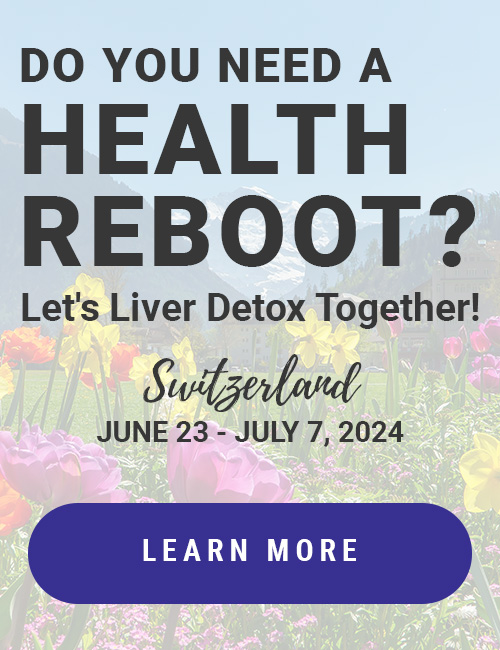9 Reasons to Smile More Every Day: Lift Your Mood, Live Longer, and More

“Smile, it is the key that fits the lock of everybody's heart.” — Anthony J. D’Angelo, Inspirational Author
It’s true! It’s something you may have noticed on your own, but the body of research behind the effects of a simple smile is growing and confirms what we inherently know—a smile lifts your own spirits and those of everyone around you.
From lowering stress, easing pain, and affecting longevity, it also has some impressive benefits for the rest of your body, too. Read on to learn how smiling benefits your mood, affects your health, and changes your environment for the better.
9 Impressive Smiling Benefits: How Does Smiling Improve Your Mood and Affect Your Body?
Smiling is one way to raise your vibration, even if you don’t feel particularly happy. See how a simple smile can benefit you during stress and other reasons why everyone should smile more!
In this article:
- Smiling Makes You See the World in a Positive Way
- Smiling Gets Your Feel-Good Hormones Flowing
- Smiling Can Benefit You During Stress, and as You Age
- Smiling Can Increase Your Lifespan
- Smiling is Nourishing for Your Heart Health
- Smiling De-Stresses You Even Days in Advance
- Smiling Helps Ease Pain
- Smiling Makes You More Attractive
- Smiling Is a Gift You Can Give to All
1. Smiling Makes You See the World in a Positive Way
The act of smiling can trick your mind into being more positive, simply by moving your facial muscles, according to research from the University of Australia, published in Experimental Psychology.
Researchers had them hold a pen between their teeth, forcing their facial muscles to replicate the movement of a smile — which lead to positive emotions.
"When your muscles say you're happy, you're more likely to see the world around you in a positive way," Dr. Marmolejo-Ramos says.
So you can trick your brain into perceiving the world as “happy,” which boosts mental health.
2. Smiling Gets Your Feel-Good Hormones Flowing
Smiling stimulates the production of neuropeptides, which are molecules the brain uses to communicate messages between neurons, according to Brian Luke Seaward, author of Managing Stress: Principles And Strategies For Health And Well-Being1. Neuropeptides signal emotions, like happiness, sadness, and anger, to the rest of the body, so it knows how to proceed in processing them.
When we’re showing off our pearly whites and signaling happiness, the brain also releases the neurotransmitters dopamine, serotonin, and endorphins (known as the “feel-good” hormones), all flowing through the body to elevate the mood and keep you in good spirits.
These hormones are responsible for your motivation, self-confidence, self-worth, and ability to nourish healthy relationships, so they’re major keys to your happiness and for staying positive.
3. Smiling Can Benefit You During Stress, and as You Age
When the going gets tough, grin and bear it—it’ll make you feel better. Even if you’re not feeling so happy, forcing a smile can get better emotions going.
A study published in Psychological Science2 found that smiling participants, whether explicitly told to smile or those who smiled naturally, experienced physical and mental benefits from “maintaining positive facial expressions during stress”.
As the saying goes, your day is only as good as your attitude, and additional research shows that maintaining a positive outlook can actually have “protective effects on mental health outcomes” as we age.3 Even more reason to smile!
[Related: 14 Ways I Optimize My Health And Energy Every Day]
4. Smiling Can Help Increase Your Lifespan
Using photographs of Major League Baseball players, researchers compared the players’ smile intensity to their longevity and found that the larger the smile, the better the biological outcome.
Out of the players that had died, they found the average age at death was 73 for those who did not smile in their photos, 75 for those who had partial smiles, and 80 for players who displayed Duchenne smiles.4 (Duchenne smiles are more “genuine,” characterized by raised cheeks and corners of the mouth, and crow’s feet wrinkles around the outer corners of the eyes.)
Researchers noted that smile intensity also “reflected a general underlying disposition”—another great motivation for holding on to that positive attitude.

5. Smiling Is Nourishing for Your Heart Health
As you smile and release serotonin into the body, you may feel more relaxed and experience lowered blood pressure as well.5 High blood pressure is a leading cause of stroke,6 and while it may take more than just a smile to bring it down to healthier levels, it’s a simple thing you can do to help lower risk of a negative cardiovascular event.
In the same Psychological Science study, researchers also monitored the heart rates of participants when given stressful tasks and found that smilers’ heart rates returned to normal more quickly than those who did not smile, signaling that those who recover from stress more easily tend to be healthier in the long run.
6. Smiling De-Stresses You Even Days in Advance
Just the knowledge that you’re going to smile in the future is enough to help you relax, according to researchers.
They found that anticipation of laughter actually decreased the stress hormones cortisol and catecholamines and elevated the subjects’ endorphin levels when tested three days in advance.7
That comedy night you’ve been wanting to attend? Get your tickets now and reap the benefits until showtime.
[Related: How To Fight Depression and Anxiety: 12 Nutrition Strategies]
7. Smiling Helps Ease Pain
Turns out laughter really is some pretty good medicine. With feel-good endorphins coursing through the body, the brain’s opiate receptors light up and causes your perception of pain to decrease.
The neuropeptides that stimulate this response “possess morphine-like effects,” according to a study published in Hawaii Medical Journal, but without the potential negative side effects nor the risk of dependence8 (although only good can come from an addiction to smiling).
8. Smiling Makes You More Attractive

Don’t worry about what clothes to wear or what makeup to buy to enhance your appearance. The one thing you need is free and unlimited in quantity: a smile.
In a study published in Cognition and Emotion in 2013, researchers analyzed the relationship between attractiveness and happiness by simultaneously showing various faces to participants on a computer and asking one group to choose the more attractive face, and the other group to choose the more happier-looking face.
Results were very similar for both experimental groups, and the researchers noted, “a happy facial expression could even compensate for relative unattractiveness.”9
[Related: A Dentist on Natural Teeth Whitening–And Which Procedure to Skip]
9. Smiling Is a Gift You Can Give to All
We don’t need science to know that it feels good to make others laugh, but the research is there and it’s confirmed, smiling is contagious!10 They call it “primitive emotional contagion”; essentially, we are wired so that emotions are unconsciously evoked by those displayed by another person.
It’s the same reason you cry when a character in a movie is crying, or feel terror when they’re screaming; smiles and laughter bring about more of the same. When someone is displaying happiness, the emotions rub off on others and the smiles keep on coming.
So Many Reasons to Smile!
There are so many physical and mental benefits to smiling that immensely improve your quality of life, there’s no reason not to show some teeth wherever you go and spread some joy.
Now you know that science confirms your happiness is contagious, pay it forward and lift someone’s spirits. Try it and see what happens!
Read Next: How To Find A Good Biological Dentist: 17 Questions To Ask

Disclosure: This post may contain affiliate links that help support the GSG mission without costing you extra. I recommend only companies and products that I use myself.

Resources
- Seaward, BL. Managing Stress: Principles and Strategies for Health and Well-Being. Sudbury, Mass.: Jones and Bartlett; 2009:258
- Kraft, TL; Pressman, SD. “Grin and bear it: the influence of manipulated facial expression on the stress response.” Psychological Science, September 24, 2012. doi: 10.1177/0956797612445312
- Kato, K et al. “Positive attitude toward life, emotional expression, self-rated health, and depressive symptoms among centenarians and near-centenarians.” Aging & Mental Health. September 2016. doi: 10.1080/13607863.2015.1056770
- Abel, Ernest L.; Kruger, Michael L. “Smile Intensity in Photographs Predicts Longevity.” Psychological Science. February 26, 2010. doi: 10.1177/0956797610363775
- Watts, Stephanie W. et al. “Serotonin and Blood Pressure Regulation.” Pharmacological Reviews. April 2012, 359-388. doi: 10.1124/pr.111.004697
- “How High Blood Pressure Can Lead to Stroke.” American Heart Association. January 29, 2018.
- Berk, Lee S. et al. “Cortisol and Catecholamine stress hormone decrease is associated with the behavior of perceptual anticipation of mirthful laughter.” The FASEB Journal. March 1, 2008. 22:1_supplement, 946.11-946.11
- Sprouse-Blum, Adam S. et al. “Understanding Endorphins and Their Importance in Pain Management.” Hawaii Medical Journal. 2010 Mar; 69(3): 70–71. PMCID: PMC3104618
- Golle, Jessika et al. “Something to smile about: The interrelationship between attractiveness and emotional expression.” Cognition and Emotion. July 22, 2013. doi: 10.1080/02699931.2013.817383
- Wild, B. et al. “Are emotions contagious? Evoked emotions while viewing emotionally expressive faces: quality, quantity, time course and gender differences.” Psychiatry Research. 2001 Jun 1;102(2):109-24. PMID: 11408051
Disclosure: This post may contain affiliate links that help support the GSG mission without costing you extra. I recommend only companies and products that I use myself.
Posted in: Emotional Health, High-Vibe Living, Lifestyle, Preventive Care, Stress Management













